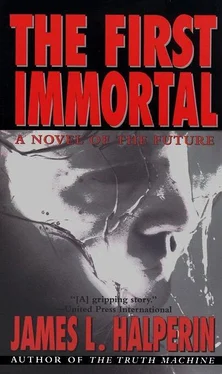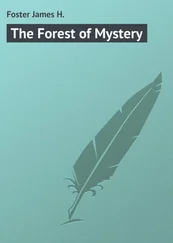Sensing the progress of the ship as it cuts through the whitecaps, he huddles there wondering how his parents will feel if he never makes it home. He imagines friends he left behind and things he’d hoped to do. And mostly he wonders about Marge. How long will she mourn? What kind of man will she marry? How clearly and how often will she remember him?
Since he no longer holds power over his circumstances, he decides to focus on the only thing he still controls: his attitude. He’ll apply his mind, salvage whatever he can from the only life God will ever give him. He knows he must be strong. If he ever gets off this boat alive, he’ll force himself, through sheer will, not to be bitter. In fact he’ll never even think about this ordeal once it’s over. He’ll live his life in the present and future without dwelling on the past.
This thought seems to make him stronger. It will help him endure the hell which on this day has barely begun. No amount of su ffering can make Ben want to die. As long as there is any hope, he will cherish and cling to life like a miser guarding his gold.
Ben will survive by placing the hellish voyage in a separate compartment and locking it, apart from his conscious mind. A few fleeting images will escape over the next thirty-nine years, but he will mostly succeed in maintaining their confinement.
Ben opened his eyes. Several people hovered over him. A disembodied hand offered a paper cup of water. He drank and felt better. Had it only been a dream? he wondered. No, a flashback. God, a repressed trauma, resurfacing.
The sight of these fellow survivors had suddenly shattered his carefully constructed prison. Now he understood. That suffocating subterranean chamber, that floating crypt, was where his loathing of cramped spaces began, and his need for control, and the fear of flying. On that boat, with that resolution. And something far worse; something evil that overpowered his rational mind, had started there, too.
His head hurt where he’d bumped it, but he assured everyone he was fine.
Then he rode a limousine to the McGuigans’ church with six of his shipmates, and swapped stories about Mack and Epstein and the Navy and the war. One of the men told Ben that Epstein had become very sick about a year ago, and that no one had heard from him since. “Probably died alone,” he speculated. “Don’t think he had any family at all.”
“He didn’t,” Ben said sadly, wondering for a moment about the point of human existence. What good had it done to save Epstein’s life, or his own, or anyone’s, if they were all going to die anyway?
Then he reconsidered, deciding: All the good in the world! Epstein had believed in no heaven and no God, yet he’d been a moral man, a great educator, a compassionate doctor whose life’s work helped others. And none of it would have been possible had he drowned that day in 1943. Didn’t every good deed tip into another like an endless series of dominoes? If he had indeed saved Epstein’s life, surely he must have saved many others with it.
The men exchanged addresses, promising to keep in touch, and for the moment intending to. Few actually would; most would feel more comfortable keeping their memories at arm’s length.
After the interment service ended, Ben drove to the airport, returned the rental car, bought another one-way ticket, and boarded the plane for home.
At first his heart raced and he began to hyperventilate. But this time he understood why. He forced himself to relax, breathing steadily and slowly.
Inhale. Exhale. Inhale. Exhale.
Within fifteen minutes his pulse returned to normal. It was almost comfortable to fly; his fears and anxiety had nearly disappeared. A fresh thought crossed his mind, something about the oxygen masks on the airplane. He fell asleep thinking about Gary and the guilt that had suffocated them both for thirty-five years.
October 30, 1982
By the time the plane landed, Ben knew what to do.
He realized that he’d visited each of his daughters’ homes hundreds of times, yet had never been inside Gary’s apartment. At 4:02 A.M. he rang the doorbell in the building vestibule.
“Who is it?” Gary answered. It was only three words but the tone suggested a few more. Who in the hell is it? was what Ben heard.
Ben shuddered, nervous but determined. “It’s me, son. I need to talk to you.”
Gary paused a second or two, then buzzed him in. Ben took the elevator to the third floor and saw his son, dressed in blue jeans and a paint-smeared plaid shirt, waiting in the doorway. Was Gary already awake? Or still up from last night?
Gary’s face was serious and handsome, but wizened for his age. He staggered a bit when he moved, but apparently didn’t need a cane these days. To Ben’s relief, he appeared sober.
The two-room apartment was smaller than he’d imagined, and the smell of paints assailed his nostrils. Half a dozen technical books on art and draftsmanship, some open, most borrowed from the public library, lay scattered on a small coffee table. A dozen paintings in various stages of completion, some already signed “Gary Franklin Smith,” rested upon easels or on the floor.
Ben was as surprised by this as he would have been to find a sleeping Bengal tiger curled in a corner; until that moment, he had not known that his son was still painting. He didn’t know much about Gary at all, he realized. His own son, and it seemed he didn’t know the slightest bit about him. What had he allowed to become of them?
Ben had studied art history in college, enough to recognize that Gary had real talent. He wondered what other aptitudes his coldness had locked within his son. Or had the suffering he’d inflicted actually released that talent? He might never know. Some roots could never be unearthed—and perhaps shouldn’t be.
“These are good.” Even that would have been impossible to say before now.
“Thanks. It pays the bills. Uh, what are you doing here at four in the morning?”
Ben stood speechless, feeling the same anxiety he’d always felt around Gary, but at least now he understood. Eventually the words came. “I’ve never told anyone what I’m about to tell you. Not even your mother. It happened during the war, and I’ve suppressed it all these years. Remembered it yesterday for the first time.”
“I know about the POW camp. Mom told me.”
“This was before that. It started on the day they sank the Boise …” Ben tried to depict his horrific voyage, the full essence of it, every sight and sound and smell he could remember. And the fear.
He sat painfully for nearly an hour, purging every morsel of his memory.
Gary never said a word.
* * *
Finally Ben told him why he’d come. “I know I haven’t been much of a father to you.”
Gary gazed back, looking straight through the man, barely seeing his face. And why should he? His father had never noticed him! Even in medical school, and later when they’d shared the medical practice, not once had Ben asked him how he spent his free time. So his father never knew that Gary could barely wait for his classes or studies or the day’s appointments to end so he could rush home to try some new technique, or a different combination of shading or color, shape or light.
Now images assaulted Gary; recollections of his father berating him, or worse, ignoring him. Of Ben shouting, “I haven’t got time for your questions right now!” He remembered his own fear on the way to the hospital that day when Grampa Sam died, when he needed comfort: some acknowledgment from his father. And now the tables had turned. But what could he say?
“You weren’t that bad.”
Ben answered, “I never gave you the understanding or attention or love your sisters got. I can only imagine how that made you feel.”
Читать дальше












